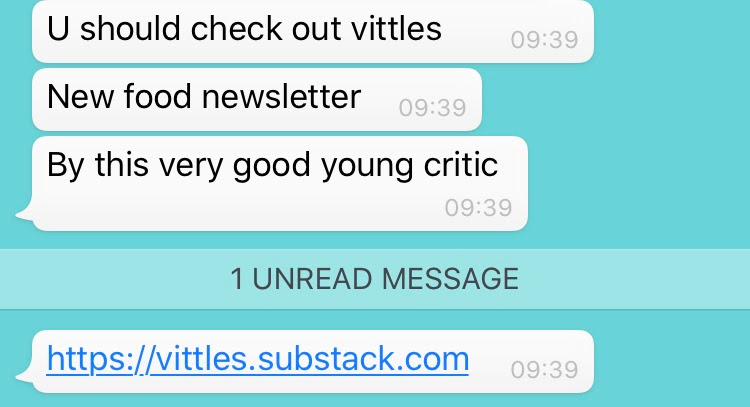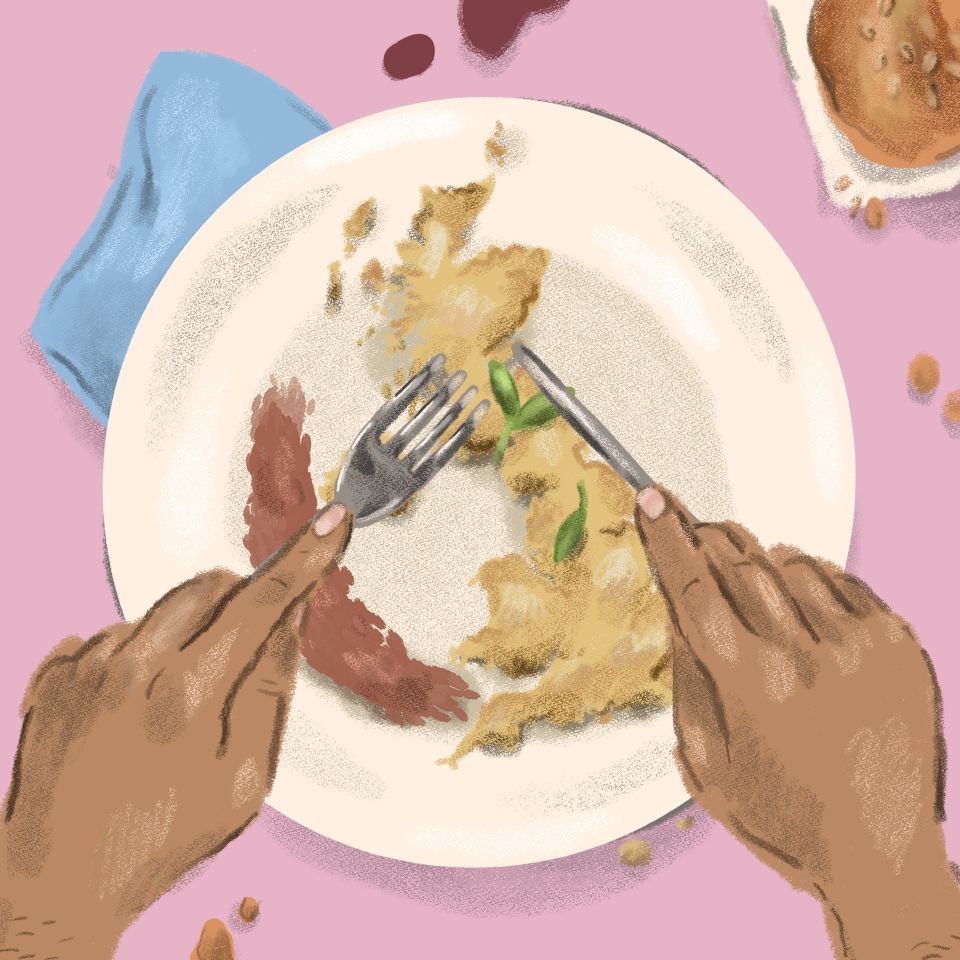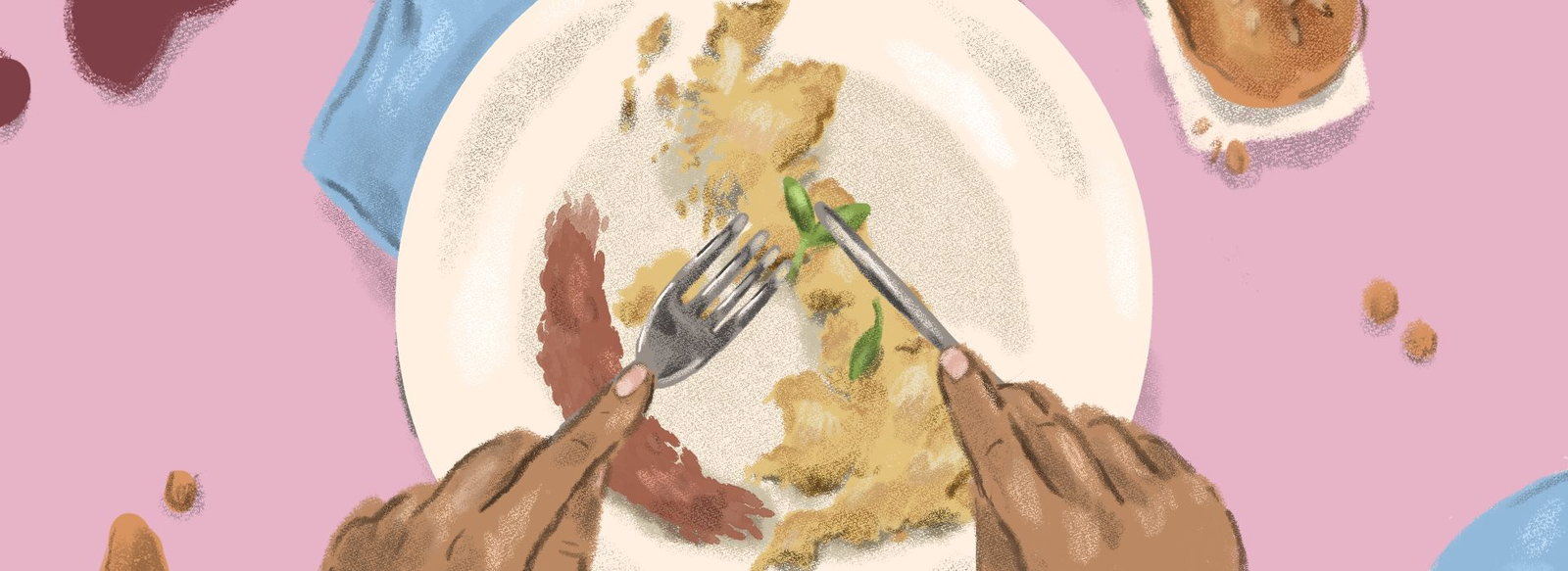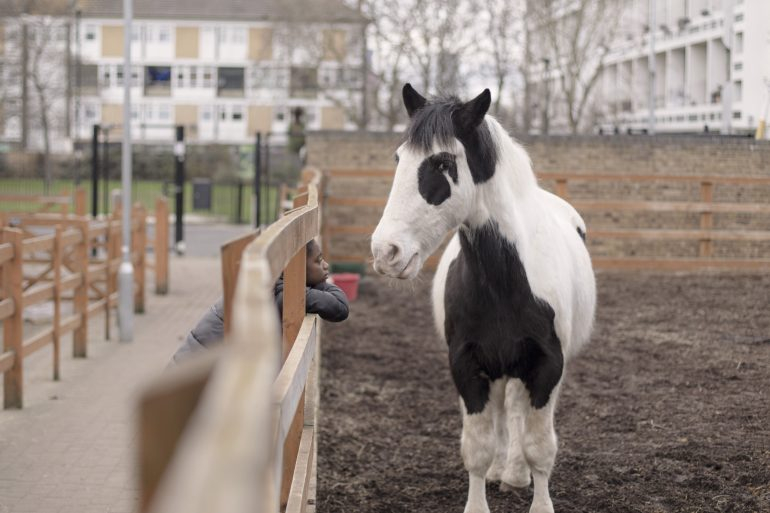
This seemingly innocuous message from a friend in early June opened our eyes and inboxes to the treasure trove that is the Vittles newsletter. This WhatsApp exchange is indicative of the organic success of the food writing platform – friends telling friends about a new form of distraction during lockdown – and in a way it’s how it started, with founder Jonathan Nunn reaching out his to colleagues in the food industry to gauge the appetite for this content.
Vittles’ growth (now reaching 11,000 subscribers) at a time where people across the UK were isolating and not physically connected says a lot about the need for content such as this and the wider interest more generally we have as a community in food, identity and the stories behind it. In itself, Vittles’ name gives nothing away, but we’re certainly thankful for the message which piqued our curiosity. Vittles is food writing, but not how you’ve seen it before: it’s a platform for new authors and cuisines which are underrepresented in mainstream food writing. Stories are told from the heart and are rich with anecdotes, with beautiful accompanying imagery breathing life into the food described with such candidness.
We’d been eager to Jonathan since the first Vittles newsletter dropped, so we were thrilled when an opportunity came up this month to sit down with him to find out more.
Can you briefly talk through the making of Vittles and how it has developed over the course of the last few months?
The making of Vittles was literally me tentatively asking a group chat of food writers and chefs – most of whom were out of work at that specific moment just after restaurants shut in March – if they thought a newsletter would be a good idea. Then it was put together ad hoc in about 48 hours with a logo made on Word – I think the most time I spent on any aspect was arguing about the name (which is actually a lift from the Redwall series of books which I was obsessed with as a child). It’s now hard to remember what it felt like in March, but for a lot of people it was like all their work was melting away. Most of the chefs I knew were worrying about where their salary was going to come from; I personally knew that most of my writing projects would have to be shelved. So, initially, it was a small way of trying to ease that transition.
And then almost instantly, the furlough scheme came in and that aspect of it became less urgent. But people still had a lot more time on their hands, and it meant I could publish five times a week and try new things out and see what works and what didn’t, which was so valuable as an editor. As my work came back, I’ve settled on publishing three articles a week. And as lockdown eased, many of the initial remits didn’t make much sense anymore – things like focusing on recipes and food shops – so I changed the remit in August and articles have become more long form and diverse in scope.
I guess the biggest development is as Vittles has grown outside the small London bubble I initially saw it in; I’m now taking pitches from pretty much every part of the world. Which is amazing, but then the question is: how do you keep true to the character of a newsletter rooted in a specific kind of British food writing whilst trying to champion new voices and new perspectives? That’s a balancing act which I’m not sure I’ve fully figured out yet.
How did your own experiences inform the making of Vittles?
In two ways: as a reader and as a writer. As a reader, I’ve tried to specifically commission the type of pieces which I don’t see much of in British food publications – particularly newspapers where most legacy food writing is published – and also avoid the editorial pitfalls which I do see a lot of, often on a daily basis. I’m not just talking about casual racism, I mean making sure things aren’t covered solely from one dominant perspective, or actually asking people from within certain communities to write things themselves rather than simply allow them an unpaid soundbite for someone else’s article. And also, as much as representation is important, to not use diversity as a box-ticking exercise. If you’re focused on the quality of the writing and the strength of the perspective, as any editor should be; if you can also take the time to find new writers and build up a relationship where writers can trust you not to water down or defang, then diversity is going to come naturally. And if it doesn’t, then you need to look into what you’re doing as an editor.
And as a writer, a lot of what I do is based on my experiences of being edited myself, which I genuinely really enjoy. Honestly, if a writer tells you they don’t like being edited then they are just being edited badly! There’s been a lot of hand-wringing going on in legacy media about how newsletters aren’t edited, which seems a bit rich given that most of these newsletters have started because editors aren’t taking interesting pitches or paying people properly, but they do have a point that editing is a valuable experience for any writer. So I try to put in as much time as I can to editing, whether that’s at the commissioning stage or granular edits, and I think that’s how it has to be – otherwise it’s unfair to new writers, if I put their work out there without it having undergone that process.
You mentioned the behemoth of US food writing as compared to the UK and the rest of the world. Can you briefly sum up the type of writing you champion on Vittles.
Lots of US food writing is obviously great, but as a general rule, the US food writing scene is obsessed with talking about itself and unfortunately that means that we’ve become obsessed with it too. And I’m as guilty of that as anyone. Like, why do I know more about the food scene of New York than I do Glasgow or Bristol? So, one of my more recent rules is actually that I don’t want to publish any American food writing unless there’s a really good reason to, because let’s be honest, there’s enough of it around.
But what’s funny is that Vittles has a very big American audience, possibly bigger than its British one. And I’m amused that Americans view it as a kind of food writing they haven’t seen much of, because I don’t feel like its tone is particularly new or radical – obviously the US had a very tonally radical publication in Lucky Peach – even though some of that is now tainted by what former staffers have said – and of course it has Whetstone, whose very existence is radical.
I guess American food writing is generally very earnest and serious, and as much as I like to rag on British food writing, there is something in its tradition of humourists that is very appealing, and that’s always been its strong suit. I’d like it if the writing on Vittles does strike that balance – not so flippant that it’s saying nothing, but tempering its political engagement with self-awareness, levity and a certain degree of transgressiveness. Sometimes I slightly yearn for the more anarchic feel Season 1 had; Season 2 feels much more serious!

What voices do you believe are missing from the food journalism space?
Voices which have something to say, politically, that goes beyond saying ‘food is political’. Working class voices. Black voices. South Asian voices who aren’t the scions of rice barons or tea estate owners. Health food writers who aren’t literally landed gentry. Restaurant critics with less than three homes.
What experience do you want Vittles readers to have?
I want people to read articles and not just come away having learnt something, but felt that they have seen a new perspective of what food writing can be, or experienced a perspective they haven’t seen been given a voice before.
You mentioned that you wanted to invest more time into commissioning ‘voices’ for Vittles. Can you talk about how you find your authors, and the belief that there shouldn’t be a distinction between ‘food writer’ and ‘writer’?
Sometimes I feel food writing has found itself in a silo like ‘sci-fi writer’ where all it is compared to are things which are in that insular field. And it’s synonymous with a type of disposable lifestyle writing – I think even people right at the top, like some restaurant critics, see what they do as a runner-up prize, a well-paid salve for the pain of being a failed novelist. And I think that does it a disservice, because the common experience of food allows you to use it to examine much knottier subjects, whether that’s systems of power or the ways in which pleasure is created and appreciated, and if you’re flexible as a writer then that can bring you to so many other things. Then it almost becomes ‘well, what ISN’T food writing?’.
Subscribe to shado's weekly newsletter
Exclusive event news, job and creative opportunities, first access to tickets and – just in case you missed them – our picks of the week, from inside shado and out.

In Season 2, even with the narrow remit of cities, Vittles has published what could also be considered tech writing, writing on monopolistic power, an academic critique of Hesiod, a history of the British Empire, urban planning, personal memoir, and an article on pan-African liberation. So no, there is no real distinction between ‘food writer’ and ‘writer’ unless you choose to restrict yourself – I love it when I see people defined by others as ‘food writers’ write beautifully about other things, whether it’s Mayukh Sen on film or Rebecca May Johnson writing about theory. And conversely when those who come at it from the outside bring their own perspective – I don’t have to look for writers anymore, but when I do it’s mainly trying to cajole ‘non-food writers’. I really love to give it a shot.
In a similar way, do you see your role as commissioner at Vittles as a way of democratising the journalism space and bringing more new writers to the industry?
Ideally, but to be realistic it will only really democratise the journalism space when it can start paying people competitively. And although I’m proud of where it’s gone in six months, it’s not at that level yet. So, it’s my responsibility to grow it in a way that feels organic but also makes sure that people are equitably paid for their time. And equally it will only bring new writers to the industry in a meaningful way if the rest of the British food media pays attention and hires some of these writers.
But the media will change – it already is, I think, although it’s like one of those big cruise ships that aren’t allowed up The Channel because they can’t U-turn fast enough.
Are there any particular people you want to reach out to to contribute to Vittles?
Those who haven’t seen food writing before that actually appeals to them, for whatever reason. Anyone who feels that food writing is a frivolous waste of time that doesn’t speak to their own lives, experiences and perspective. Also Nigel Slater.
Has the success of Vittles surpassed expectations? What do you put its success down to?
Given my initial expectation was to alleviate boredom, and my current expectation is world domination, I would say it has. If I knew exactly why it was successful then I feel I’d probably instantly ruin it – there’s a lot to be said for not knowing exactly what you’re doing – but being able to publish so many great writers has something to do with it. And hopefully giving them the space to write something they wouldn’t have been able to write somewhere else.
Subscribe to Vittles HERE
See more of Javie Huxley’s work on her instagram














